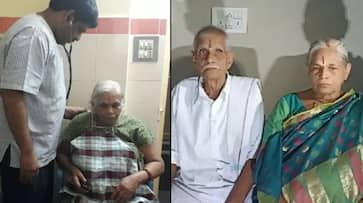Women who take the help of assisted reproduction technology to deliver babies at advanced age can be at risk, and such practice at advanced age is “unethical”
Bengaluru: It’s a matter of pride and satisfaction for a woman to mother her kid.
Many maybe of the opinion that age should not be a criterion for women to choose when to become mothers.
But in relation to a case in which a 74-yr-old woman delivered twins with the help of IVF or in vitro fertilisation, doctors have expressed their unhappiness over the issue.
They have even termed it “unethical”.
These doctors are not against motherhood, but are concerned about the risks involved at such an advanced age.
“We appeal to our members and healthcare professionals in India to abstain from unethical malpractice, which may risk the lives of our patients, offspring and future generations,” Times of India quoted Dr Jaideep Malhotra, president of the Indian Society of Assisted Reproduction.
It doesn’t stop at that. Doctors say that a woman hits menopause by 52 and her ovarian reserve can be kept intact for 42 years.
“If a woman is made to carry an embryo at 74, she risks cardiac failure, renal failure and heavy bleeding. The chances of maternal mortality during delivery would be high,” Times of India quoted
Dr Sangeetha S Anand, consultant reproductive medicine, Manipal Fertility, Manipal Hospitals.
On the legal issue, there is no legal cap on the upper age of a woman undergoing IVF.
A draft prepared in relation to a bill related to assisted reproduction had recommended that an upper age of 52 be set.
Dr Kamini Rao, a distinguished fertility expert said to Times of India, “Had the guidelines framed by the ART (Assisted reproduction technology) been made a law, people involved in this episode of a 74-year-old woman giving birth to twins would have been jailed.”
Last Updated Sep 7, 2019, 2:51 PM IST









![Salman Khan sets stage on fire for Anant Ambani, Radhika Merchant pre-wedding festivities [WATCH] ATG](https://static-gi.asianetnews.com/images/01hr1hh8y86gvb4kbqgnyhc0w0/whatsapp-image-2024-03-03-at-12-24-37-pm_100x60xt.jpg)
![Pregnant Deepika Padukone dances with Ranveer Singh at Anant Ambani, Radhika Merchant pre-wedding bash [WATCH] ATG](https://static-gi.asianetnews.com/images/01hr1ffyd3nzqzgm6ba0k87vr8/whatsapp-image-2024-03-03-at-11-45-35-am_100x60xt.jpg)


